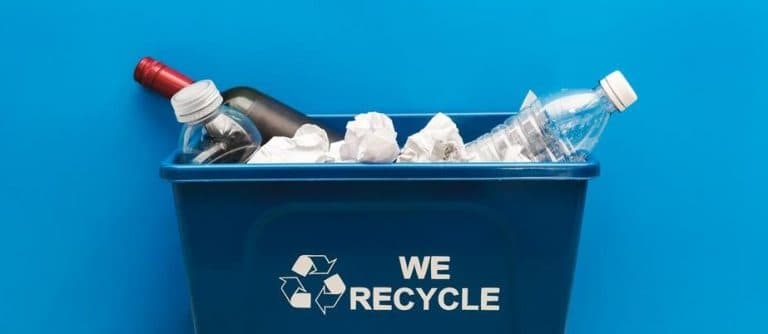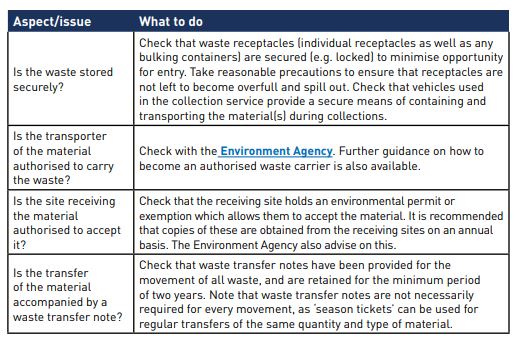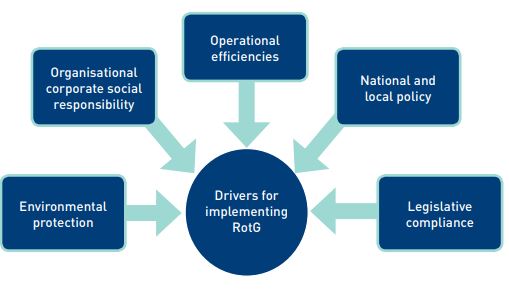
Why you should urgently implement recycling at work and on the go…
In May 2018, the European Council adopted the waste package which sets out new rules for waste management and establishes legally binding targets for recycling. These new targets for recycling are set out in The Waste Framework Directive (WFD), which has already been placed into National Law in Scotland.
“I am very pleased that ministers have given their approval to the revised legislation on waste today. Europe is moving towards a circular economy. These new rules protect not only our environment but also the health of our citizens. Today we close the loop of product lifecycles, from production and consumption to waste management. This decision is about making our economies more sustainable and environmentally-friendly.” Neno Dimov, Bulgarian Minister of Environment and Water
Member states will have to meet the following targets as they increase the reuse and recycling of municipal waste:
| By 2025 | By 2030 | By 2035 | |
| Municipal waste | 55% | 60% | 65% |
Member states will set up, by 1 January 2025, separate collections of textiles and hazardous waste from households. In addition, they will ensure that by 31 December 2023, bio-waste is either collected separately or recycled at source (e. g. home composting). This is in addition to the separate collection which already exists for paper and cardboard, glass, metals and plastic.
The legislation defines specific recycling targets for packaging:
| By 2025 | By 2030 | |
| All packaging | 65% | 70% |
| Plastic | 50% | 55% |
| Wood | 25% | 30% |
| Ferrous metals | 70% | 80% |
| Aluminium | 50% | 60% |
| Glass | 70% | 75% |
| Paper and cardboard | 75% | 85% |
The legislation contains a landfill reduction target, and sets minimum requirements for all extended producer responsibility schemes. Producers of products covered by these schemes must take responsibility for the management of the waste stage of their products, and will be required to contribute financially. Mandatory extended producer responsibility schemes for all packaging have also been introduced. Member states shall endeavour to ensure that as of 2030, all waste suitable for recycling or other recovery, in particular in municipal waste, shall not be accepted in a landfill.
Understanding the above is important as it sets out wider recycling targets than just those we may set internally within our business. To help businesses support the targets set, and to acknowledge that we need to now look outside of our own four walls (home / business), WRAP have put together a guide for organisations managing or implementing recycle on the go infrastructure – Recycle On The Go (ROTG). This is a very insightful document regardless of whether you wish to improve recycling rates within your business, or support the wider community with on the go recycling solutions.
Below is a very short summary of the report and highlights only the initial section – Reasons for implementation. To read the full document, please click the link (in blue) above.
#1 – Effective Recycling Can Cut Costs
Being resource-efficient may help you to cut the costs associated with waste disposal. It could also help improve your standing with customers who, more than ever, are looking for companies to demonstrate their commitment to environmental sustainability. A visible recycling system sends a strong message to your stakeholders (both internal and external) that you’re considering the environment as part of your wider corporate social responsibility (CSR) commitments or corporate sustainability goals.
#2 – Effective Recycling Helps The Environment
We are entering an era of resource scarcity. The extraction and processing of raw materials to manufacture new products is becoming more and more challenging. By providing facilities to enable people to recycle at work (and on the go), we can collectively close the loop on materials otherwise destined for final disposal. What’s more, using recycled materials in any manufacturing process requires considerably less energy than that needed to create new products from scratch.
Recycling helps to:
- conserve resources;
- protect the environment;
- reduce landfill; and
- save energy.
#3 – Drives Operational Efficiencies
An effective recycling system at work can directly drive a reduction in waste management costs. By encouraging your workforce to correctly segregate waste at source, you improve the value of your waste. Failing to provide an effective recycling solution may result in all types of waste going to landfill. This not only increases your waste management cost but also places you at risk of negative brand perception and

failure to adhere to guidelines regarding landfilling.
#4 – Adherence to National Policy & Strategy
As mentioned already, Scotland has placed The Waste Framework Directive into national law. The Welsh Government’s Towards Zero Waste (TZW) strategy† sets a target for Wales of recycling 70 per cent of all wastes by 2025 and achieving ‘zero waste’ by 2050.
Therefore, for those working within the borders of Scotland, adherence is mandatory. For those outside of the Scottish borders, getting your house in order now is both logical and sensible.
And naturally you also have a duty of care.

At Unisan UK, we provide game-changing solutions that enable our customers to rethink their traditional approaches & demonstrate their commitment to environmental sustainability, whilst making recycling easier and more efficient.
Alternatively, if you’re keen to learn even more?
† http://wales.gov.uk/topics/environmentcountryside/epq/waste_recycling/publication/towardszero/;jsess ionid=wp3RQY0ffd6L0p857kmdJ6Y39nGyNXtHkTg5drn8JfTb4Wf66Yfr!-1988510053?lang=en

